Climate
-
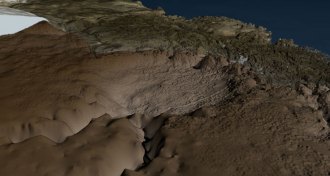 Earth
EarthGreenland crater renewed the debate over an ancient climate mystery
Scientists disagree on what a possible crater found under Greenland’s ice means for the Younger Dryas impact hypothesis.
-
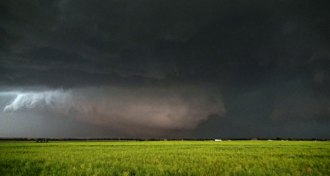 Climate
ClimateNew research may upend what we know about how tornadoes form
New data on the birth of tornadoes suggest that the twisters don’t form from the top down.
-
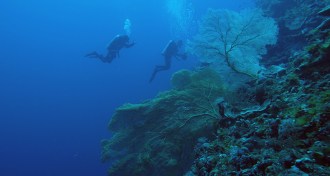 Animals
AnimalsNearly 200 Great Barrier Reef coral species also live in the deep sea
There are more coral species lurking in the deep ocean that previously thought. That could be good news for their shallow water counterparts.
-
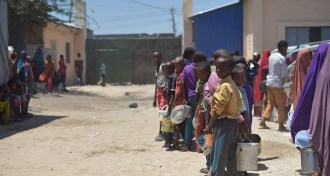 Climate
ClimateThe list of extreme weather caused by human-driven climate change grows
The tally of extreme weather events linked to climate change continues to grow, with new studies outlining links to more than a dozen events in 2017.
-
 Climate
ClimateGlobal carbon dioxide emissions will hit a record high in 2018
Carbon dioxide emissions from China, the United States and India all rose this year, a new report finds.
-
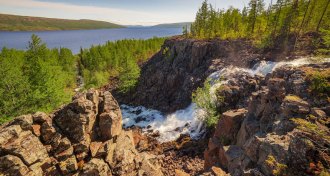 Oceans
OceansVolcanic eruptions that depleted ocean oxygen may have set off the Great Dying
Massive eruptions from volcanoes spewing greenhouse gases 252 million years ago may have triggered Earth’s biggest mass extinction.
-
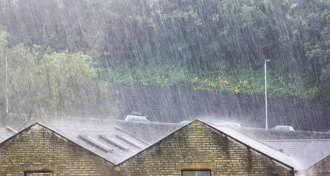 Climate
ClimateHalf the world’s annual rain falls in just 12 days
Climate change could shorten the time it takes for the world to receive half its annual precipitation from 12 days to 11 by 2100.
By Kyle Plantz -
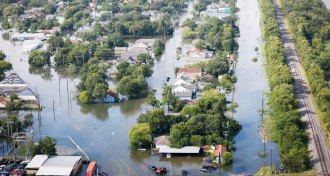 Climate
ClimateHere’s how much climate change could cost the U.S.
A report by hundreds of scientists from 13 federal agencies starkly outlines the economic impacts of climate change on the United States.
By Carolyn Gramling and Laurel Hamers -
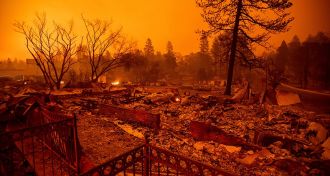 Climate
ClimateDevelopment near natural areas puts more Californians in the path of wildfires
As urbanization extends its reach into once-natural areas, more homes and people are at risk from wildfires.
-
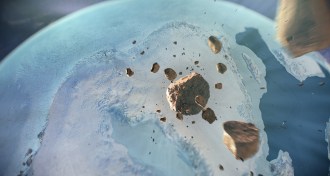 Earth
EarthA massive crater hides beneath Greenland’s ice
The discovery of a vast crater in Greenland suggests that a 1-kilometer-wide asteroid hit the Earth between 2.6 million and 11,700 years ago.
-
 Animals
AnimalsClimate change may have made the Arctic deadlier for baby shorebirds
What were once relatively safe havens in the Arctic are now feasting sites for predators of baby birds.
By Susan Milius -
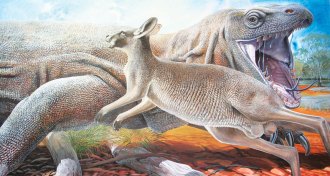 Paleontology
Paleontology‘End of the Megafauna’ examines why so many giant Ice Age animals went extinct
‘End of the Megafauna’ ponders the mystery of what killed off so many of Earth’s big animals over the last 50,000 years.
By Erin Wayman